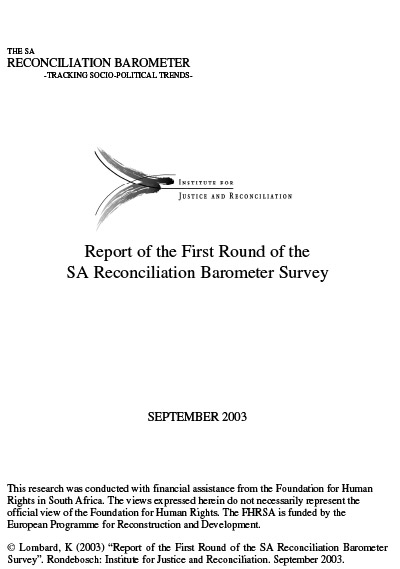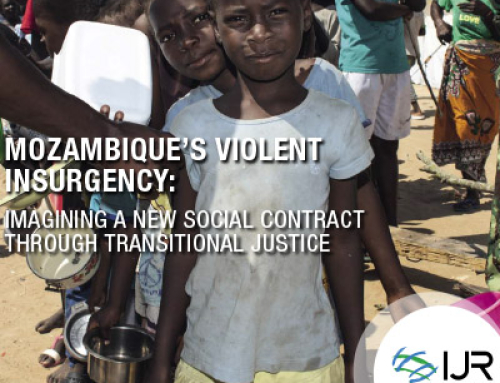
SARB Report 2003 – 1st Round
The process of reconciliation can begin at different points in the transition of a country from a totalitarian state to a new form of democracy. For some, it begins at the negotiation table; for others, when perpetrators are indicted and prosecuted; for others, it may be when prisoners are released; for others, when a new constitution, which guarantees fundamental freedoms, is accepted; and for some, it is when free and open elections are held in which all citizens can participate. There are many starting points, but its never a once off. The process is ongoing, especially in countries where oppression has been deep and lasting.
By eloquently recognizing the various watershed moments at which national reconciliation could be described as having officially begun, this quote emphasizes that reconciliation is undeniably a process that South Africans have only recently embarked upon. Few could argue that South Africa did not embark on this journey in a most spectacular manner. Some extol the remarkable progress the nation has made. Some remain skeptical about the achievements of the past decade, whilst others are unsure how far down the path of reconciliation South Africa has traveled.
The SA Reconciliation Barometer project intends to provide some answers to the question of how the national reconciliation process is unfolding. By conducting regular public opinion surveys, audits of tangible transformation and monitoring relevant national developments, this research intendeds, not only, to provide some quantification of the direction and distance along the path of reconciliation already traveled, but also to yield
more precise information regarding the issues that advance or retard the process.
By: Lombard, K.
Pages: 71
Dimensions: A4
Date of publication: 2003




